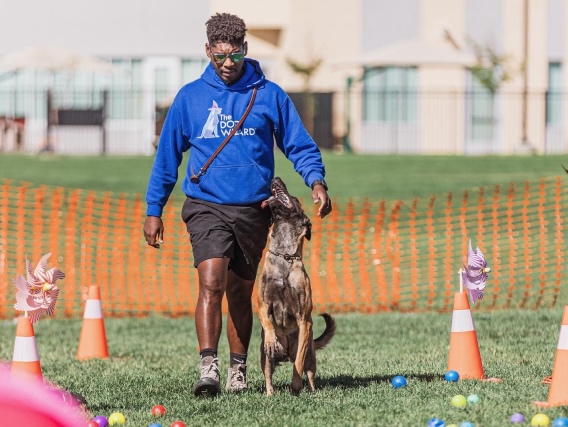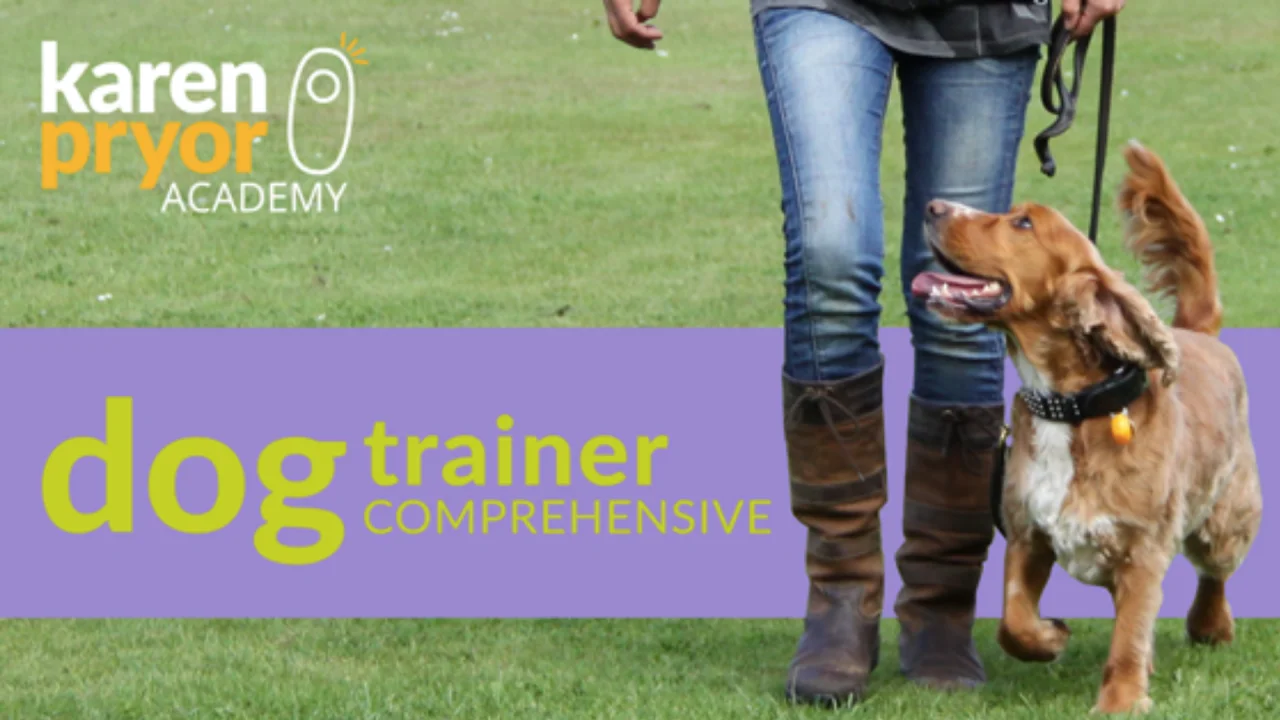Exploring Options for Dog Training Charlotte: What You Need to Know
Exploring Options for Dog Training Charlotte: What You Need to Know
Blog Article
Unlock Your Pet dog's Potential: Proven Pet Dog Training Strategies for Success
Efficient dog training is a nuanced procedure that hinges on comprehending canine habits and using clinically backed techniques. By including positive support, developing clear commands, and focusing on socializing, pet proprietors can cultivate an effective connection with their animals.
Comprehending Pet Behavior
Comprehending pet dog habits is essential for effective training and promoting a positive connection between canines and their owners. A thorough grasp of canine body language, articulations, and social interactions is important for identifying their requirements and feelings. Canines interact mainly via non-verbal hints; for instance, a wagging tail may show exhilaration, while pinned ears can signify anxiety or entry.

Moreover, environmental aspects play a significant role fit a pet's actions. Changes in routine, brand-new surroundings, or the presence of unknown individuals can bring about stress and anxiety or stress and anxiety in canines. Acknowledging these triggers allows owners to reduce negative responses and create appropriate training strategies.
Ultimately, a deep understanding of dog actions lays the structure for effective training methods, boosting both actions and the total bond between the canine and its owner. dog training charlotte. This expertise is crucial for cultivating a well-adjusted, happy canine buddy
Favorable Reinforcement Techniques
Effective training counts greatly on positive reinforcement methods, which have been shown to yield substantial lead to forming preferred habits in pets. This method entails awarding a dog for displaying particular actions, thus increasing the chance that these behaviors will certainly be repeated. Rewards can take different kinds, consisting of treats, appreciation, playthings, or play, depending on what inspires the specific dog.

It is vital to progressively phase out benefits as the pet dog finds out the behavior, transitioning to intermittent support. This strategy preserves the actions with time while avoiding reliance on consistent benefits. By concentrating on favorable support, instructors can cultivate a relying on relationship with their pets, promoting a healthy and cooperative training setting that enhances general obedience and performance.
Developing Consistent Commands
A basic element of successful pet dog training is the facility of constant commands. Uniformity in commands is crucial for reliable communication in between the trainer and the dog. When commands are consistent, pet dogs discover to associate certain words with desired behaviors, which accelerates the training procedure and improves understanding.
To establish regular commands, it is vital that all member of the family utilize the exact same terminology and motions. If one individual uses "sit" while an additional says "sit down," it can create confusion for the pet. Select clear, distinctive words for commands and guarantee everybody associated with the dog's training sticks to these selections.
Reinforce commands with frequent practice, guaranteeing that the canine receives adequate possibilities to react correctly. When a dog effectively complies with a command, immediate favorable reinforcement needs to comply with.
Lastly, be person. Developing consistent commands takes time and initiative. With commitment and quality, you will certainly aid your dog establish a solid understanding of expectations, eventually bring about a mannerly companion.
Socialization and Exposure
Socializing a pet dog is crucial for fostering a positive and well-adjusted companion. This process entails subjecting your canine to a selection of atmospheres, people, and other animals to establish their social abilities and adaptability. Early socialization, ideally in between the ages of 3 to fourteen weeks, is essential, as it lays the groundwork for a dog's future actions.
During socializing, goal to supply favorable experiences in different settings, such as parks, active roads, and homes with various other family pets. Present your dog to various stimuli, including noises, views, and smells, ensuring that each encounter is satisfying. This direct exposure aids reduce anxiety and stress and anxiety, paving the means for an extra durable pet.
Taking part in controlled group play sessions with other pet dogs can additionally enhance social skills, showing your animal suitable interactions and boundaries. Always monitor your canine's comfort degree during these experiences, gradually raising exposure as their confidence expands. Keep in mind, the goal is to produce an all-around pet that thrives in varied circumstances, promoting a harmonious partnership with both people and various other animals. Focusing on socialization will dramatically add to your pet's total happiness and habits throughout their life.
Conquering Common Educating Obstacles

One more constant concern is diversion. Pet dogs may have a hard time to focus in unknown or busy settings. Gradually desensitize your pet to distractions by starting training in a quiet setting and slowly presenting more stimulations as they come to be skillful (Dog training). Positive reinforcement techniques, such as deals with and praise, can preserve inspiration and focus.
Furthermore, behavior problems like leaping or extreme barking can become frustrating. Address these by educating different actions, such as sitting calmly when welcoming guests. Uniformity and perseverance are critical; reinforce preferred behaviors constantly and prevent scolding, which can bring about complication.
Lastly, recognize that each pet is distinct, and training timelines might differ. Dressmaker your strategy to your pet's individual requirements, and look for specialist advice if needed. With determination and the best methods, overcoming these difficulties can lead to a well-trained, happy canine companion.
Final Thought
Finally, opening a pet's potential demands a detailed strategy that integrates an understanding of canine actions, the application of favorable reinforcement methods, and the establishment of consistent commands. Early socialization and exposure to varied settings better improve a dog's adaptability and self-confidence. By addressing typical training obstacles with tailored approaches and patience, a harmonious and participating relationship between pet and trainer can be click for info promoted, ultimately leading to a mannerly companion qualified of growing in numerous circumstances.
Effective dog training is a nuanced procedure that pivots on recognizing canine behavior and utilizing medically backed techniques.Recognizing pet behavior is crucial for efficient training and promoting a positive relationship between canines and their owners.Effective training depends greatly on positive reinforcement strategies, which have actually been revealed to yield considerable results in shaping preferred behaviors in dogs. When commands are uniform, pets discover to connect particular words with wanted habits, which accelerates the training procedure and improves understanding.
In conclusion, unlocking a dog's prospective necessitates a detailed technique that includes an understanding of canine behavior, the application of favorable support techniques, and the facility of regular commands.
Report this page